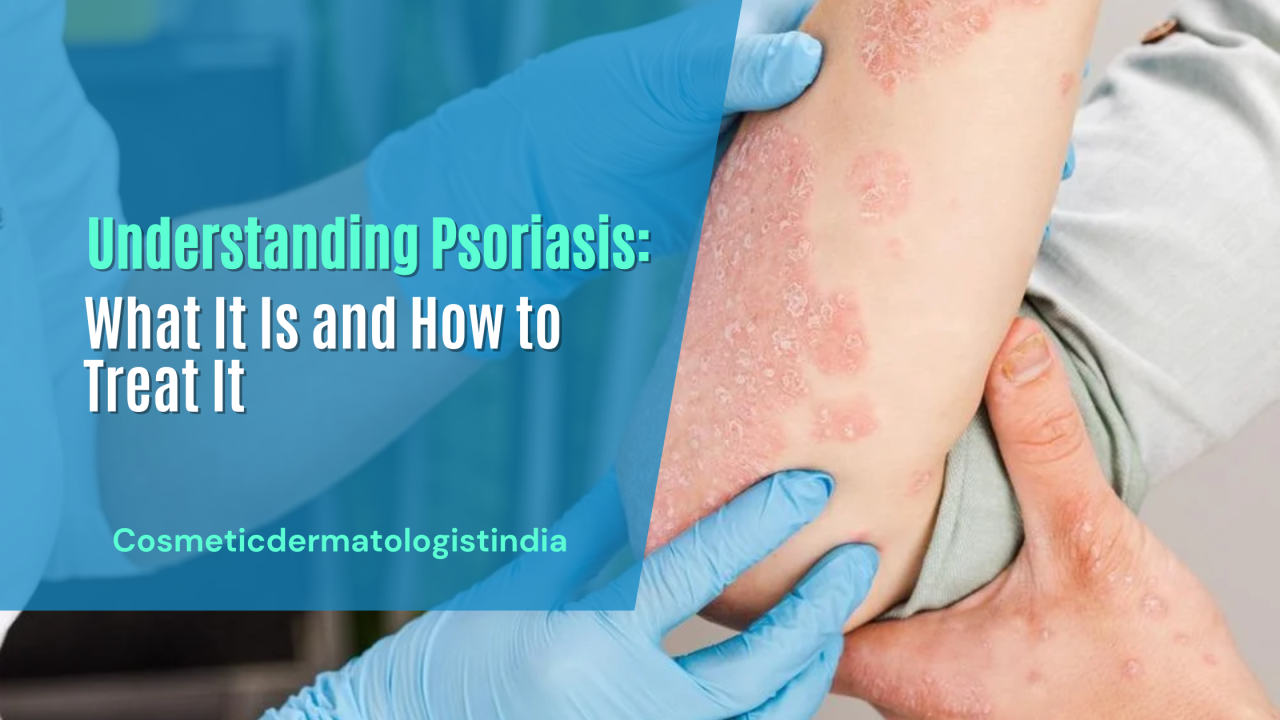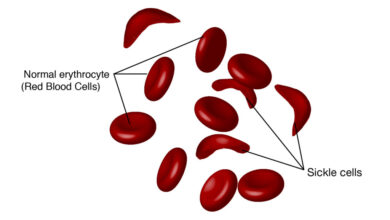
Help someone living with psoriasis by understanding the condition, finding support, and managing daily life. Psoriasis, a chronic skin condition, affects millions worldwide, causing a range of physical and emotional challenges. This guide provides a comprehensive overview of the condition, offering practical strategies and resources to navigate its complexities.
From recognizing the different types of psoriasis and their symptoms to understanding the emotional impact, this guide covers a wide range of aspects. We’ll delve into seeking support, managing daily life, exploring treatment options, and prioritizing emotional well-being. We’ll also touch upon coping strategies and lifestyle adjustments, and provide valuable resources for further information and support.
Understanding Psoriasis: Help Someone Living With Psoriasis
Psoriasis is a chronic autoimmune disease that affects the skin. It’s characterized by the rapid production of skin cells, leading to inflamed, red, and scaly patches. While psoriasis can affect anyone, it’s most commonly diagnosed in people between the ages of 15 and 35. This condition can significantly impact a person’s physical and emotional well-being. Understanding its various types, symptoms, and misconceptions is crucial for effective management and support.Psoriasis is a complex condition that manifests in different ways, leading to varied symptoms and experiences.
This diverse presentation makes it important to have a thorough understanding of the different forms of psoriasis. This knowledge will help individuals and healthcare professionals better manage the condition. The physical and emotional toll of psoriasis can be substantial, impacting self-esteem, social interactions, and overall quality of life. It’s important to recognize the challenges faced by those living with this condition and to foster a supportive environment for them.
Types of Psoriasis
Psoriasis presents in various forms, each with unique characteristics and symptoms. This diversity highlights the complexity of the disease and the need for personalized treatment approaches. Recognizing these differences can lead to more effective management strategies.
- Plaque Psoriasis: This is the most common type, characterized by raised, red patches covered with silvery-white scales. These patches typically appear on the elbows, knees, scalp, and lower back. It is often associated with periods of exacerbation and remission.
- Inverse Psoriasis: This type affects skin folds, such as the armpits, groin, and under the breasts. The affected skin is smooth, red, and shiny, lacking the characteristic scales of plaque psoriasis. This form is less likely to be accompanied by visible inflammation.
- Pustular Psoriasis: This form is characterized by the presence of pus-filled blisters on the skin. These blisters can occur on the whole body or on specific parts. The condition is often accompanied by fever, chills, and general malaise.
- Erythrodermic Psoriasis: This is a severe form of psoriasis that involves widespread redness and inflammation of the skin. It is a life-altering condition that requires immediate medical attention.
Common Symptoms of Psoriasis
Psoriasis is marked by various skin manifestations. Understanding these symptoms is crucial for diagnosis and treatment.
- Redness: Inflammation of the skin, resulting in redness and irritation.
- Scaly Patches: Thickened, silvery-white scales that develop on the affected skin areas.
- Thickened Skin: The skin may appear thicker and rougher than usual.
- Itching: The affected skin areas may experience itching and discomfort.
- Pain: Some individuals experience pain and tenderness in the affected skin areas.
Physical and Emotional Impact
Psoriasis can significantly impact an individual’s physical and emotional well-being. Recognizing these impacts is critical for providing support and appropriate care.
- Physical Impact: The discomfort and pain associated with psoriasis can affect daily activities and overall quality of life.
- Emotional Impact: The visible nature of psoriasis can lead to feelings of self-consciousness, embarrassment, and low self-esteem.
Common Misconceptions
There are several misconceptions surrounding psoriasis. Correcting these misunderstandings is essential for promoting understanding and support.
- Psoriasis is contagious: Psoriasis is not contagious. It’s an autoimmune condition, not an infectious disease.
- Psoriasis is a sign of poor hygiene: Psoriasis is not caused by poor hygiene practices. It is a chronic skin condition with a complex underlying mechanism.
- Psoriasis can be cured: Currently, there is no cure for psoriasis. Treatment focuses on managing symptoms and preventing flare-ups.
Comparison of Psoriasis Types
The following table provides a comparison of the different types of psoriasis, highlighting their key characteristics and locations.
| Type of Psoriasis | Description | Location | Symptoms |
|---|---|---|---|
| Plaque Psoriasis | Raised, red patches covered with silvery-white scales | Elbows, knees, scalp, lower back | Thickened skin, itching, pain |
| Inverse Psoriasis | Smooth, red, shiny skin in skin folds | Armpits, groin, under breasts | Lack of scales, redness, irritation |
| Pustular Psoriasis | Pus-filled blisters on the skin | Whole body or specific parts | Blisters, fever, chills, malaise |
| Erythrodermic Psoriasis | Widespread redness and inflammation of the skin | Entire body | Severe inflammation, intense itching, discomfort |
Seeking Support and Resources

Living with psoriasis can be challenging, but knowing you’re not alone and having access to the right support makes a significant difference. This journey often involves navigating various resources, understanding your options, and building a strong support system. This section will guide you through finding the help you need.Finding support is crucial for managing psoriasis effectively. It’s not just about the medical treatment; it’s about the emotional well-being and practical assistance you need to cope with the daily challenges of the condition.
Support Groups and Online Communities
Connecting with others who understand what you’re going through can provide invaluable emotional support and practical advice. Online communities and support groups offer a safe space to share experiences, ask questions, and find encouragement.
- National Psoriasis Foundation (NPF): The NPF offers online forums, support groups, and educational resources. They provide a platform for connecting with peers and professionals.
- Local Support Groups: Many local organizations host support groups, allowing for face-to-face interaction and building a stronger sense of community.
- Online Forums and Social Media Groups: Dedicated online forums and social media groups provide a space for connecting with individuals facing similar experiences. This can offer a sense of belonging and understanding.
Role of Family and Friends
The support of family and friends can play a vital role in the overall well-being of someone living with psoriasis. Open communication and understanding are key to fostering a supportive environment.
- Open Communication: Encourage open communication about the challenges and emotional impact of the condition. Sharing experiences and feelings can strengthen the support network.
- Practical Assistance: Practical help, such as assisting with daily tasks or offering emotional support, can significantly reduce the burden of living with psoriasis.
- Education: Educating family and friends about psoriasis can help them better understand the condition and provide more effective support.
Importance of Seeking Professional Medical Advice
Professional medical advice is essential for effective psoriasis management. Different individuals may require different approaches, and a healthcare professional can tailor a treatment plan to specific needs.
- Personalized Treatment Plans: A healthcare professional can assess individual needs and create a personalized treatment plan that addresses the specific symptoms and concerns of the patient.
- Monitoring Progress: Regular check-ups and monitoring are vital for tracking the effectiveness of treatment and adjusting strategies as needed.
- Addressing Potential Complications: Healthcare professionals can identify and address potential complications associated with psoriasis, such as infections or joint problems.
Healthcare Professionals
A variety of healthcare professionals can contribute to the management of psoriasis. Knowing who to contact and when can be beneficial in navigating the healthcare system.
| Healthcare Professional | Role in Psoriasis Management |
|---|---|
| Dermatologist | Specialists in skin conditions, dermatologists are crucial for diagnosing psoriasis, developing treatment plans, and monitoring the condition’s progression. |
| Rheumatologist | If joint involvement (psoriatic arthritis) is suspected or present, a rheumatologist is essential for diagnosis and management of the related arthritis. |
| Primary Care Physician (PCP) | A PCP can provide initial assessments, refer patients to specialists, and manage some aspects of psoriasis treatment, especially for mild cases. |
| Registered Dietitian | A registered dietitian can provide dietary guidance to help manage psoriasis, which is often linked to nutritional factors. |
| Psychologist/Therapist | Addressing the emotional and psychological impact of psoriasis can be crucial. A therapist can help manage stress and anxiety associated with the condition. |
Managing Daily Life with Psoriasis
Living with psoriasis can present unique challenges in managing daily life. This often involves adapting to flare-ups, discomfort, and potential emotional impacts. Effective strategies for symptom management are crucial for maintaining well-being and quality of life.Navigating the daily realities of psoriasis requires a multi-faceted approach that combines targeted skincare, stress reduction techniques, a balanced diet, regular exercise, and sometimes the use of assistive devices.
Understanding these aspects allows individuals to actively participate in managing their condition and fostering a healthier lifestyle.
Skincare Routines for Psoriasis
Effective skincare is essential for managing psoriasis symptoms. A consistent routine, tailored to individual needs, can significantly reduce inflammation and discomfort. This involves using gentle cleansers, moisturizing creams, and potentially topical medications as prescribed by a dermatologist. Proper hydration is paramount to soothe dry, irritated skin, a common symptom associated with psoriasis.
- Gentle cleansers should be used to avoid further irritation. Avoid harsh soaps or scrubs that can exacerbate inflammation.
- Moisturizing is crucial to maintain skin hydration. Moisturizers should be applied frequently, especially after bathing or showering, to prevent dryness and scaling.
- Topical medications, prescribed by a dermatologist, can help manage inflammation and reduce the appearance of plaques. These medications may include corticosteroids, vitamin D analogs, or other targeted treatments.
Stress Reduction Techniques
Stress can significantly impact psoriasis symptoms. Developing healthy coping mechanisms is vital for managing flare-ups and overall well-being. Practices like mindfulness, meditation, yoga, or deep breathing exercises can help reduce stress levels. Prioritizing sufficient sleep and setting realistic boundaries also play a crucial role.
- Mindfulness practices, such as meditation and deep breathing exercises, can help manage stress responses. Regular practice can train the mind to focus on the present moment, reducing anxiety and promoting relaxation.
- Engaging in activities that promote relaxation, such as yoga or spending time in nature, can contribute to stress reduction.
- Establishing healthy boundaries and prioritizing sufficient sleep are essential for managing stress and overall well-being.
Diet and Exercise for Psoriasis Management
A balanced diet and regular exercise contribute significantly to overall health and can positively impact psoriasis management. Nutritious foods rich in vitamins, minerals, and antioxidants can support immune function and reduce inflammation. Regular physical activity improves blood circulation and can help regulate stress hormones.
- A balanced diet rich in fruits, vegetables, and whole grains can support overall health and may help reduce inflammation. Limiting processed foods, sugary drinks, and excessive alcohol intake is also recommended.
- Regular exercise, such as walking, swimming, or cycling, can improve circulation and reduce stress hormones. Consistency is key to achieving these benefits.
Assistive Devices and Tools
Certain assistive devices can enhance daily living for individuals with psoriasis. These tools can range from specialized clothing to support systems that help with tasks. For example, moisture-wicking fabrics and clothing made with breathable materials can help reduce skin irritation.
- Clothing made from moisture-wicking fabrics and breathable materials can help prevent skin irritation and promote healing. Choosing clothing that minimizes friction and avoids harsh materials is essential.
- Support groups and online communities can provide valuable emotional support and practical advice for managing psoriasis.
Lifestyle Adjustments for Psoriasis Management
Implementing various lifestyle adjustments can significantly improve psoriasis management. A tailored approach that considers individual needs and preferences is essential for long-term success.
| Lifestyle Adjustment | Description |
|---|---|
| Balanced Diet | Prioritize fruits, vegetables, and whole grains, limiting processed foods, sugary drinks, and excessive alcohol. |
| Regular Exercise | Engage in physical activity, such as walking, swimming, or cycling, to improve circulation and reduce stress. |
| Stress Reduction Techniques | Practice mindfulness, meditation, yoga, or deep breathing exercises to manage stress levels. |
| Consistent Skincare Routine | Use gentle cleansers, moisturizers, and topical medications (as prescribed) to manage skin inflammation and dryness. |
| Adequate Sleep | Prioritize sufficient sleep to support the body’s natural healing processes. |
Treatment Options and Approaches
Living with psoriasis can be challenging, but effective treatment options are available. Understanding the different approaches, their potential benefits and drawbacks, and the importance of adherence to a treatment plan is crucial for managing the condition effectively. This section will explore the various treatment options, from topical medications to systemic therapies, and will highlight the significance of patient-physician collaboration in achieving optimal outcomes.
Topical Medications
Topical medications are often the first line of treatment for psoriasis. These medications are applied directly to the affected skin and work by reducing inflammation and promoting skin cell turnover. Common topical treatments include corticosteroids, vitamin D analogs, and calcineurin inhibitors.
- Corticosteroids are potent anti-inflammatory agents that can effectively control psoriasis symptoms. However, prolonged use can lead to skin thinning, striae (stretch marks), and skin atrophy. The choice of corticosteroid and its strength depends on the severity and location of the psoriasis.
- Vitamin D analogs, such as calcipotriol and tacalcitol, work by regulating skin cell growth and reducing inflammation. They are generally well-tolerated, but can cause skin irritation, burning, and redness in some individuals.
- Calcineurin inhibitors, such as tacrolimus and pimecrolimus, suppress the immune response that contributes to psoriasis. These medications are typically used for milder cases or in areas where corticosteroids are not suitable. Potential side effects include skin irritation and, in rare cases, infection.
Phototherapy
Phototherapy involves using ultraviolet (UV) light to treat psoriasis. Narrowband UVB and PUVA (psoralen plus UVA) are common phototherapy methods. These treatments can effectively reduce inflammation and clear plaques, but can also increase the risk of skin cancer and premature aging. Patients undergoing phototherapy should take precautions to protect their skin from sun exposure.
Helping someone with psoriasis can be tough, but understanding other chronic conditions like pulmonary arterial hypertension prognosis can offer valuable perspective. Knowing the challenges of managing a condition like that can help you empathize with the struggles of someone with psoriasis, and better understand how to offer practical support. Focusing on small, thoughtful gestures, like reminding them to take their medication or helping them find resources, can make a real difference in their daily lives.
After all, a little kindness goes a long way.
- Narrowband UVB phototherapy uses a specific wavelength of UVB light to target the inflammation in the skin. It is generally considered to be less likely to cause skin cancer compared to PUVA.
- PUVA involves the application of a photosensitizing agent (psoralen) followed by exposure to UVA light. This approach can be very effective in treating severe psoriasis, but it carries a higher risk of skin cancer and cataracts.
Systemic Medications
Systemic medications are used for more severe cases of psoriasis that do not respond to topical or phototherapy treatments. These medications work by suppressing the immune system and reducing inflammation throughout the body. Examples include methotrexate, cyclosporine, and biologics.
- Methotrexate is a disease-modifying antirheumatic drug (DMARD) that can effectively reduce inflammation and slow skin cell growth. Potential side effects include liver damage, nausea, and fatigue. Regular monitoring of liver function is essential when using this medication.
- Cyclosporine is an immunosuppressant that can effectively control psoriasis symptoms. It can lead to kidney damage, hypertension, and infections, making regular monitoring crucial.
- Biologics are a newer class of systemic medications that target specific parts of the immune system involved in psoriasis. They are generally well-tolerated, but can increase the risk of infections and other side effects. Biologics are often reserved for moderate to severe psoriasis cases.
Adherence and Comparison
Adherence to the prescribed treatment plan is critical for the success of any psoriasis treatment. Regular appointments, consistent medication use, and lifestyle modifications are key to achieving and maintaining remission.
| Treatment Option | Pros | Cons | Cost-Effectiveness |
|---|---|---|---|
| Topical Medications | Easy to apply, relatively low risk | May not be effective for severe cases, potential for skin irritation | Generally cost-effective |
| Phototherapy | Effective for many cases, can be targeted | Risk of skin cancer, premature aging, potential side effects | Variable cost depending on type and frequency |
| Systemic Medications | Potentially highly effective for severe cases | Significant potential side effects, frequent monitoring required | Generally more expensive |
Emotional Well-being and Mental Health
Living with psoriasis can be emotionally challenging. The visible nature of the condition can lead to feelings of isolation, self-consciousness, and low self-esteem. Beyond the physical discomfort, the emotional impact can be profound, affecting a person’s mental health and overall quality of life. Understanding these emotional effects and developing coping strategies is crucial for managing psoriasis effectively.The emotional toll of psoriasis extends beyond the physical symptoms.
Helping someone manage psoriasis can be tough, especially when it impacts their mental well-being. Sometimes, even seemingly simple tasks like maintaining a clean home can become overwhelming, potentially leading to feelings of depression. This is something I’ve personally observed, and I find the connection between home environment and mental health really fascinating. Resources like depression and a clean home can provide useful insights into the broader picture.
Ultimately, support for someone living with psoriasis needs to go beyond the physical symptoms and address the emotional toll as well.
The constant presence of the condition, the potential for social stigma, and the impact on self-image can contribute to feelings of stress, anxiety, and even depression. It’s important to recognize these emotional struggles as a part of the experience and to seek support when needed.
Managing Stress, Anxiety, and Depression, Help someone living with psoriasis
Stress, anxiety, and depression are common responses to chronic conditions like psoriasis. Developing healthy coping mechanisms can significantly mitigate these feelings. These include mindfulness practices, stress-reduction techniques, and maintaining a supportive social network.
Coping Mechanisms for Social Stigma and Discrimination
Psoriasis can sometimes lead to social stigma and discrimination. Building resilience and self-acceptance is key to navigating these challenges. Strategies for coping include educating others about psoriasis, focusing on self-care, and seeking support from a community of understanding individuals.
- Understanding Psoriasis: Educating others about the condition can help reduce misunderstandings and break down stigmas. This can involve sharing information about psoriasis’s nature, its impact, and the availability of treatments.
- Self-Care and Acceptance: Focusing on self-care activities, such as exercise, healthy eating, and relaxation techniques, can improve emotional well-being. Accepting the condition, understanding that it’s not a reflection of one’s worth, and focusing on positive self-image are essential components.
- Building Support Systems: Connecting with others who understand the experience of living with psoriasis can offer invaluable support. Online forums, support groups, and local communities can provide a safe space for sharing experiences, offering encouragement, and building connections.
Mental Health Resources Specific to Psoriasis
Accessing mental health resources is essential for managing the emotional impact of psoriasis. Seeking support from qualified professionals, including therapists or counselors specializing in chronic illness, can provide valuable tools and strategies.
Helping someone navigate the challenges of psoriasis can be tough, but it’s so rewarding. One area that often gets overlooked is the emotional toll it takes. Sometimes, a simple act of kindness can make a world of difference, like offering a comforting distraction, like researching ways to treat breast feeding thrush, treating breast feeding thrush , which can often be a source of frustration and discomfort for new parents.
Ultimately, supporting someone with psoriasis involves understanding their needs and offering practical and emotional support.
- Therapists and Counselors: Mental health professionals can offer personalized guidance and support tailored to the unique emotional challenges of living with psoriasis. They can help individuals develop coping mechanisms, address anxiety or depression, and build resilience.
- Support Groups: Connecting with others who share similar experiences can offer a sense of community and validation. These groups provide opportunities to share coping strategies, receive encouragement, and build a supportive network.
- Online Resources: Numerous online resources, including websites and forums, offer information and support for individuals with psoriasis. These resources can provide access to information, connect people with others, and offer emotional support.
Improving Self-Esteem and Confidence
Maintaining a positive self-image is crucial for managing the emotional effects of psoriasis. Focusing on self-care, building self-acceptance, and engaging in activities that foster confidence can contribute significantly to emotional well-being.
- Positive Self-Talk: Replacing negative self-talk with positive affirmations can foster a more positive self-image. Recognizing and challenging negative thoughts about the condition is a key step.
- Celebrating Achievements: Acknowledging and celebrating personal achievements, both big and small, reinforces positive self-perception and boosts confidence. This can include recognizing progress in managing symptoms or overcoming challenges.
- Engaging in Hobbies and Activities: Participating in activities that bring joy and fulfillment can improve self-esteem. Hobbies and interests can provide a sense of purpose and accomplishment, contributing to overall well-being.
Coping Strategies and Lifestyle Adjustments
Living with psoriasis requires proactive coping strategies and lifestyle adjustments to effectively manage symptoms and maintain overall well-being. This section delves into practical tips for navigating flare-ups, maintaining a healthy lifestyle, and adapting to daily routines, all while acknowledging the emotional toll that psoriasis can sometimes take.Understanding psoriasis is not just about the physical symptoms; it’s about holistic well-being.
Adapting to a psoriasis-friendly lifestyle can significantly improve quality of life and reduce stress. This includes managing stress, adjusting routines, and proactively addressing social situations that might arise.
Managing Flare-Ups and Symptoms
Effective strategies for managing psoriasis flare-ups involve proactive measures and consistent self-care. Immediate responses to a flare-up are crucial, and long-term strategies for preventing future flare-ups are just as important. Early detection and intervention can help prevent the escalation of symptoms.
- Regular monitoring of skin condition: Paying close attention to changes in skin appearance, location, and severity is vital. This allows for early identification of potential flare-ups, enabling timely intervention and preventing further discomfort.
- Implementing a consistent skincare routine: A well-defined skincare routine that includes gentle cleansers, moisturizers, and potentially topical medications is essential. This routine should be followed diligently to maintain skin health and minimize flare-ups.
- Utilizing prescribed treatments: Proper adherence to prescribed treatments, whether topical medications or phototherapy, is crucial for managing symptoms and preventing exacerbations. Regular check-ins with healthcare providers are necessary to monitor treatment efficacy and adjust strategies as needed.
Maintaining a Healthy Lifestyle
A healthy lifestyle is crucial for managing psoriasis effectively. Maintaining a balanced diet, regular exercise, and sufficient sleep can contribute significantly to overall well-being and support the body’s natural healing processes.
- Balanced diet: A diet rich in fruits, vegetables, and whole grains, along with adequate hydration, can support overall health and potentially reduce inflammation. Limiting processed foods, sugary drinks, and excessive saturated fats can also contribute to better skin health.
- Regular exercise: Engaging in regular physical activity, even moderate exercise, can help improve mood, reduce stress, and potentially influence inflammation levels. Consult with a healthcare professional for appropriate exercise recommendations.
- Prioritizing sleep: Adequate sleep is essential for the body’s natural healing processes. Aim for 7-9 hours of quality sleep per night to support overall well-being and resilience.
Stress Management Techniques
Chronic conditions like psoriasis can lead to increased stress levels. Developing effective stress management techniques is crucial for maintaining emotional well-being and supporting the body’s ability to heal.
- Mindfulness and meditation: Practicing mindfulness and meditation can help individuals focus on the present moment, reducing stress and anxiety. Regular practice can cultivate emotional resilience.
- Deep breathing exercises: Simple deep breathing exercises can effectively calm the nervous system, promoting relaxation and reducing stress responses. Regular practice can become a valuable tool for managing daily stress.
- Seeking support groups: Connecting with others facing similar challenges through support groups can provide valuable emotional support, reduce feelings of isolation, and foster a sense of community.
Adapting Daily Routines
Adapting daily routines to accommodate psoriasis can significantly improve quality of life. Strategies for minimizing disruptions to daily life can be highly effective.
- Scheduling treatments: Scheduling treatments around daily commitments can help ensure consistent adherence to prescribed regimens without disrupting work or social activities.
- Using assistive devices: Employing assistive devices, such as ergonomic tools or specialized clothing, can make daily tasks easier and reduce physical strain.
- Prioritizing self-care: Incorporating regular self-care activities, like taking breaks and practicing relaxation techniques, can help manage symptoms and promote overall well-being.
Managing Social Situations
Social situations can be challenging for individuals living with psoriasis. Strategies for addressing these situations can significantly impact overall well-being.
- Open communication: Open communication with loved ones and friends about psoriasis can foster understanding and reduce potential misunderstandings or judgments.
- Setting boundaries: Setting healthy boundaries can help manage expectations and protect personal well-being, especially in social contexts.
- Building a support network: Cultivating a supportive network of friends, family, or support groups can provide valuable emotional support and reduce feelings of isolation.
Practical Tips for Reducing Stress and Improving Mood
| Activity | Description |
|---|---|
| Regular Exercise | Engage in physical activity, even moderate exercise, to improve mood and reduce stress. |
| Mindfulness Meditation | Practice focusing on the present moment to reduce stress and anxiety. |
| Deep Breathing Exercises | Employ deep breathing techniques to calm the nervous system and reduce stress responses. |
| Social Connection | Connect with supportive friends, family, or groups to combat feelings of isolation. |
| Healthy Diet | Consume a balanced diet rich in fruits, vegetables, and whole grains for overall well-being. |
Information and Education

Understanding psoriasis requires access to reliable information and a commitment to ongoing learning. This knowledge empowers individuals to manage their condition effectively and make informed decisions about their health. It’s crucial to differentiate psoriasis from other skin conditions, grasp the nuances of different types, and utilize reputable resources for support.Accurate information empowers individuals to navigate the complexities of psoriasis and fosters a sense of control and understanding.
This knowledge is essential for proactive management and improved well-being.
Reliable Sources of Information
Reliable information sources are essential for navigating psoriasis. They provide accurate details about the condition, treatment options, and available support systems. Consulting with healthcare professionals, especially dermatologists, is critical. They offer personalized guidance based on individual needs and provide crucial insight into managing the condition. Patient advocacy groups and reputable online resources can also be valuable tools, but always verify the information’s accuracy.
- Dermatologists: Dermatologists are medical doctors specializing in skin conditions. They can diagnose psoriasis, discuss treatment options, and provide personalized care plans.
- National Psoriasis Foundation (NPF): This organization is a leading resource for information, support, and research on psoriasis. They offer educational materials, connect individuals with support groups, and advocate for improved care.
- The American Academy of Dermatology (AAD): The AAD provides detailed information on various skin conditions, including psoriasis, and offers resources for patients and healthcare professionals.
- Mayo Clinic: The Mayo Clinic website offers comprehensive medical information on a wide range of health conditions, including psoriasis. Their articles are usually written by medical professionals and provide reliable details about the condition.
- Government health websites: Websites of national and local health agencies often contain valuable information on psoriasis, its management, and related health concerns. They can offer guidelines, statistics, and local resources for individuals seeking support.
Identifying and Differentiating Psoriasis
Accurate identification of psoriasis is crucial for effective treatment. It’s important to distinguish psoriasis from other skin conditions that may exhibit similar symptoms. Early diagnosis ensures prompt and appropriate treatment, potentially minimizing long-term complications.
- Visual Examination: The characteristic appearance of psoriasis can be a key indicator. Patches of red, inflamed skin, often covered with silvery scales, are common features. Careful observation and comparison with reputable images or illustrations can assist in distinguishing it from other conditions.
- Medical History: A thorough medical history can provide context and aid in distinguishing psoriasis from other skin conditions. Family history, prior skin conditions, and concurrent medical problems can all contribute to the diagnostic process.
- Physical Examination: A physical examination by a healthcare professional is essential for accurate diagnosis. This can involve assessing the affected skin areas, checking for other symptoms, and conducting tests to rule out other possible causes.
Importance of Ongoing Education
Ongoing education about psoriasis is vital for effective self-management. Staying informed about new treatments, research advancements, and best practices empowers individuals to make proactive decisions about their health. This includes learning about different types of psoriasis and their specific characteristics.
- Adapting to Treatments: Understanding how different treatments work and their potential side effects allows for informed choices and proactive adjustments to therapies.
- Proactive Health Management: Knowledge about psoriasis enables proactive measures, such as lifestyle adjustments, to minimize triggers and improve overall well-being.
- Identifying Triggers: Learning about triggers and how to manage them is critical for preventing flare-ups and maintaining control of the condition.
Types of Psoriasis and Their Needs
Understanding the different types of psoriasis is crucial for tailored management strategies. Each type of psoriasis may respond differently to treatment, and recognizing these differences can lead to more effective interventions.
- Plaque Psoriasis: The most common type, characterized by raised, red patches covered with silvery scales. Management often involves topical treatments, phototherapy, or systemic medications.
- Pustular Psoriasis: This type involves the formation of pus-filled blisters on the skin. Treatment usually requires a combination of approaches, including systemic medications and supportive care.
- Inverse Psoriasis: This type appears in skin folds, often causing redness and inflammation. Addressing moisture and friction in these areas is crucial for management.
Reputable Organizations for Support
Numerous organizations offer valuable information and support to individuals living with psoriasis. These resources can provide a sense of community and empower individuals to navigate their condition.
- National Psoriasis Foundation (NPF): The NPF offers a comprehensive range of resources, including educational materials, support groups, and advocacy initiatives.
- American Academy of Dermatology (AAD): The AAD provides detailed information on various skin conditions, including psoriasis, and offers resources for patients and healthcare professionals.
- Psoriasis.org: This website provides information, support, and a forum for connecting with others who have psoriasis.
Community and Support Networks
Finding solace and strength in a community of shared experiences is crucial for anyone living with psoriasis. Connecting with others who understand the challenges, both physical and emotional, can significantly impact your journey toward managing this condition. This sense of belonging can foster a supportive environment that empowers you to navigate the complexities of psoriasis.
The Importance of Connecting with Others
Psoriasis can be isolating. The visible nature of the condition, along with its fluctuating symptoms, can lead to feelings of shame, embarrassment, and social withdrawal. Sharing experiences with others who understand the struggles of living with psoriasis can significantly reduce feelings of isolation and foster a sense of belonging. This shared understanding creates a space where individuals can offer encouragement, practical advice, and emotional support.
Examples of Support Groups and Online Communities
Numerous support groups and online communities cater to people with psoriasis. Local support groups offer opportunities for in-person interaction, allowing for direct connections and the building of meaningful relationships. Online forums, social media groups, and dedicated websites provide virtual platforms for connecting with others who share similar experiences. These platforms allow for continuous support, especially for those geographically dispersed or lacking access to local support groups.
Benefits of Sharing Experiences and Coping Strategies
Sharing personal experiences and coping strategies within a supportive community can be transformative. Learning from others’ successes and challenges can provide valuable insights and inspiration. This exchange of information can lead to the discovery of effective coping mechanisms, treatment strategies, and lifestyle adjustments. Sharing successes and failures fosters a sense of community and helps individuals feel less alone in their journey.
The Role of Social Support in Managing Psoriasis
Social support plays a vital role in managing psoriasis. The emotional and practical assistance provided by others can significantly improve mental well-being and help individuals navigate the emotional toll of the condition. A supportive network can offer encouragement during challenging times, provide practical advice, and reduce feelings of isolation and helplessness. This support can manifest in practical help with tasks, or simply in having someone to talk to and share experiences with.
Using Online Platforms to Connect
Online platforms offer a convenient way to connect with others living with psoriasis. Many dedicated online forums and social media groups are specifically designed for individuals with this condition. Participating in these communities allows for open communication, the sharing of experiences, and the development of meaningful connections with others who truly understand the daily challenges of living with psoriasis.
Engaging with these online platforms can be a powerful tool for gaining support and fostering a sense of community.
Wrap-Up
In conclusion, helping someone living with psoriasis requires a multifaceted approach. This guide offers a roadmap for understanding the condition, navigating its challenges, and fostering support. By arming yourself with knowledge, resources, and coping mechanisms, you can make a meaningful difference in the lives of those affected by psoriasis. Remember, empathy, understanding, and a willingness to learn are key to providing effective support.





